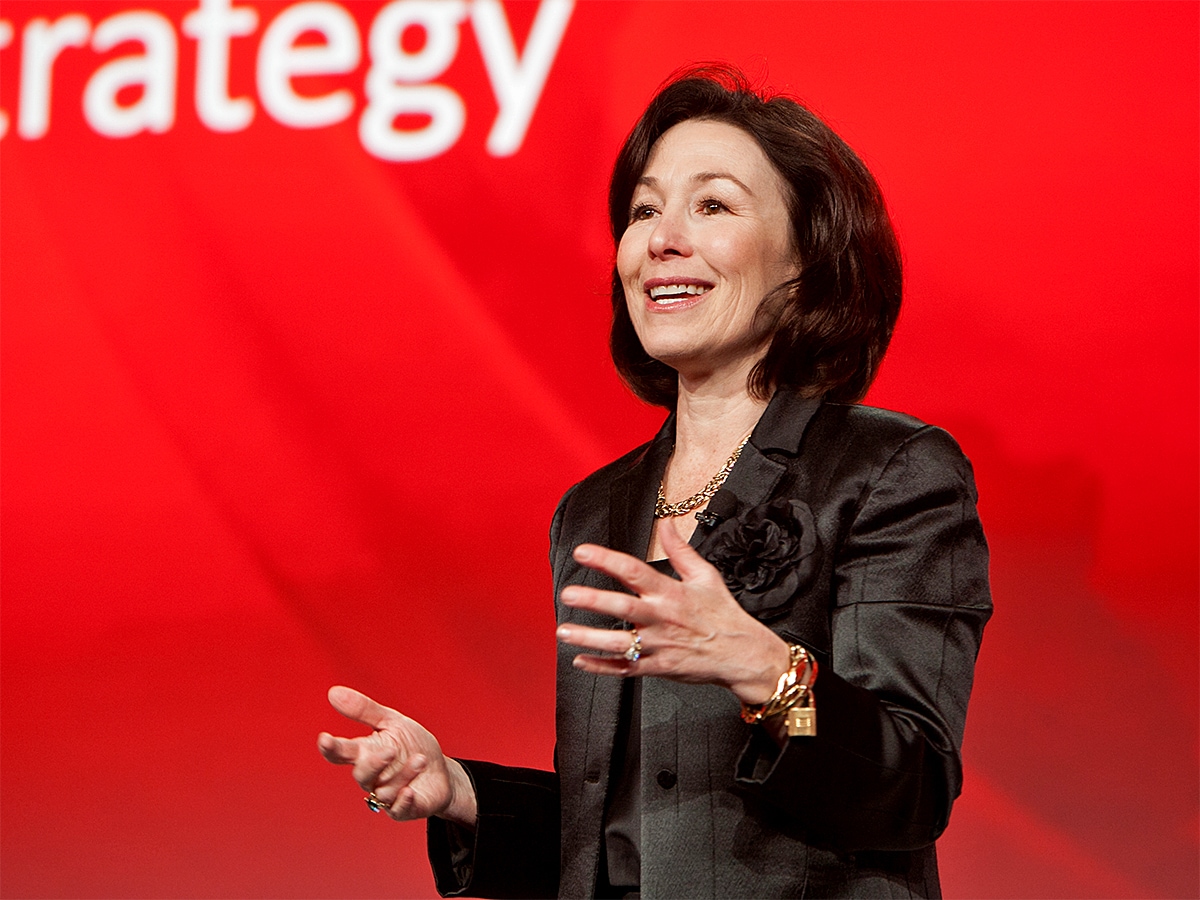Oracle’s [ORCL] share price has been worth following over the last 12 months, boosted by companies’ increasing adoption of software cloud services.
Oracle’s share price climbed 34.7% from $53.70 on 16 June last year to $72.33 on 9 March 2021, buoyed by enterprises looking for cloud and software applications to help them cope with remote working during the coronavirus pandemic.
Oracle’s share price dropped to $66.32 during intraday trading on 22 March amid fears that, as the economy re-opens and government financial support tapers down, struggling companies could cut back on software spending.
Oracle’s share price also suffered during the spring downturn, when tech stocks were hit by concerns over higher interest rates and inflation. However, the company is regarded by some investors as more of an old tech value stock than its younger growth peers, which has helped it bounce back quicker.
Oracle’s share price closed at $82.962 on 14 June, up 28.8% year-to-date.
As the company prepares to release its fourth-quarter results on 15 June, will Oracle’s share price continue to float higher?
Silver linings
Oracle’s share price was helped by third-quarter results in March showing a 3% year-over-year hike in total revenues to $10.1bn, with cloud services and license support revenues up 5% to $7.3bn (see Safra Catz, CEO of Oracle, pictured).
The company credited strong customer demand for its Fusion Enterprise Resource Planning (ERP) and NetSuite ERP offerings, and its Autonomous Database, which helps combat data theft through encryption.
Analysts at Zacks Equity Research expect Oracle to post a 9% year-over-year growth in earnings, to $1.31 per share, on a 6% hike in revenues to $11.07bn.
Zacks believes that Oracle will once again have benefited from its cloud offerings such as Fusion ERP and Fusion Human Capital Management (HCM). Zacks expects its cloud services and license support revenues to climb 7.1% to $7.33bn for the quarter, year-over-year.
“Moreover, increased availability of Oracle cloud regions globally is expected to have strengthened its competitive position in the cloud computing market,” Zacks said. “In May 2021, the company launched its second cloud region in Brazil, namely Vinhedo Cloud region, marking the 30th cloud region in the world.”
"Increased availability of Oracle cloud regions globally is expected to have strengthened its competitive position in the cloud computing market" - Zacks Equity Research
A report in Investing.com stated that Oracle’s performance comes after “years of stagnant sales”. It added: “Growth prospects are improving as the company focuses on cloud computing services in an effort to accelerate revenue growth. Customer interest in the firm’s internet-based applications has finally offset declining demand for its legacy tools.”
However, the picture isn’t all rosy. Zacks added that “higher investments on product development and platform to retain its competitive stance against the likes of dominant cloud players like Amazon’s [AMZN] Web Services and Google [GOOG] Cloud is likely to have affected profitability”.
Hardware revenues are also forecast to have dropped by 1.7% on a year-over-year basis.
Analysts are also cautious, with MarketScreener revealing a consensus rating of hold on the stock and an average target price of $71.40.
Questions of value
Trefis believes Oracle’s price may be overvalued, citing a lack of revenue growth — up 2% on the same period last year — during the first nine months of 2021.
For the full year 2021, it expects Oracle’s revenues to grow at roughly the same pace by 2.8% to $40.2bn, and in full year 2022 to rise by 3.2% to $41.4bn.
“We believe Oracle’s stock has reached its near-term potential. The stock has risen 19% in FY 2021 compared to the S&P 500, which has increased by 22% in the same period,” Trefis stated.
"We believe Oracle’s stock has reached its near-term potential" - Trefis
Keith Weiss, equity analyst at Morgan Stanley, is also concerned about Oracle’s “slower growth rate compared to peers”.
Writing for Yahoo Finance, he said: “Despite potential opportunities within existing database customers and cloud-based ERP applications, offsets from waning businesses mean 2021 likely lacks the catalysts for the positive inflection in revenue growth investors would need to see to drive multiples higher.”
However, Jea Yu, writing in Entrepreneur Europe, remains confident. “As workers return to offices and the reopening gets underway with the acceleration of [COVID-19] vaccinations, Oracle shares have been climbing in anticipation of the growth spurt,” he says. “While pundits argue that Oracle’s migration to cloud has been slow, the database giant is reaping the rewards of its acquisitions and investments.”
Investors can track Oracle’s progress in software-as-a-service (SaaS) sector-focused ETFs. On 11 June, it had a 6.52% weighting in the iShares Expanded Tech-Software Sector ETF [IGV], the shares of which have climbed from $270.08 at close on 15 June 2020 to $379.12 at 14 June 2021’s close.
On 14 June, it also had a 4.53% weighting in the First Trust Cloud Computing ETF [SKYY], whose shares have risen from $70.58 at the close on 15 June last year to $103.60 at the close on 14 June.
Continue reading for FREE
- Includes free newsletter updates, unsubscribe anytime. Privacy policy





